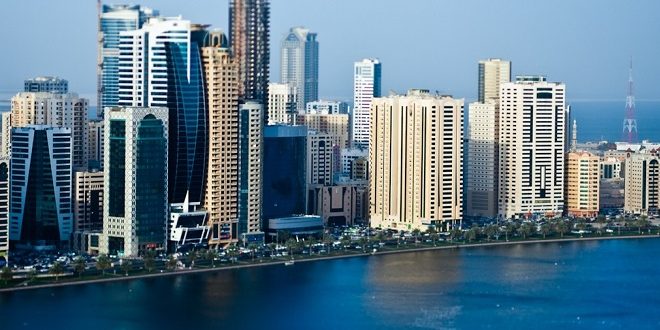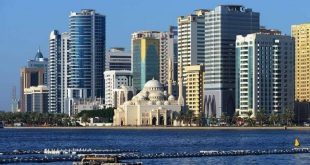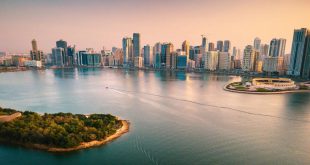The latest annual credit analysis from Moody’s Investors Service, which rates Sharjah’s government at an A3 long-term credit rating with a stable outlook, reports that the emirate’s debt burden and debt affordability remain low and compare well with its peers, despite the economic pressures on fiscal metrics. Moody’s also expects the emirate’s nominal GDP growth to remain firmly in positive territory at around 4 percent into 2017, compared to 6 percent on average in 2010-2015 (as calculated by Moody’s).
Sharjah government has consistently garnered recognition for its solid fiscal management from Moody’s Investors Services, Standard & Poor’s and other global agencies, as it has endeavoured to develop its financial systems to keep pace with a dynamic economic and financial environment. S&P noted earlier this year that the Sharjah government’s interest costs have fallen sharply as a result of its active debt management operations.
Sharjah secured its first credit ratings from global agencies in 2014, in advance of launching the emirate’s first 10 year US dollar sukuk (the second successful sovereign sukuk being issued in January of this year). Supported by global credit ratings, Sharjah’s sovereign sukuks have helped to highlight the solid fundamentals of Sharjah’s economy and strong fiscal policy to a global economic audience. Importantly, the addition of market funding to the government’s debt management programme has been a key factor in reducing financing costs.
Sharjah Central Finance Department (SFD) put in place a new financial strategy for 2016-2018, which includes a set of measures to ensure effective management of public debt and the ability to better manage Sharjah’s credit rating. The wide ranging strategy aims to improve government spending efficiency and financial performance, whilst developing an innovative financial system. Goals toward greater transparency, integrity, innovation, departmental empowerment and social responsibility are all reflected in the SFD’s strategy.
The new Moody’s analysis report also found that inflation volatility is slightly lower for Sharjah than for the UAE, due to the smaller reliance on volatile foreign capital flows and foreign ownership controls. Inflation in Sharjah, which has been subdued since mid-2015, fell steeply since the start of 2016, increasing by only 0.2 percent year-on-year in August 2016. This reflects a favourable base effect from the fuel price hikes that took effect in August 2015 and pressure on food and fuel prices from lower commodity prices, says Moody’s.
Moody’s believes that the Sharjah government’s efforts to develop a medium-term fiscal strategy, is one of three key developments that could bring greater predictability to Sharjah’s fiscal outlook. The other developments being; the proceeds of a planned value-added tax to be introduced in 2018/19, which could increase the stability of Sharjah’s government revenue; and the integrating of decentralised government departments, consolidating accounts and introducing shared systems could reap significant results. The government consolidated the accounts of the Roads and Transport Authority (RTA) in 2015 and plans to consolidate the accounts of the Sharjah municipality in 2017, with the Department of Awqaf to be integrated at a later stage.
The Sharjah economy’s traditional strength and source of stability is its well diversified economic base, with very little direct reliance on oil revenues. According to S&P, Sharjah’s real estate and business services sector accounts for 22 percent of GDP, manufacturing for 17 percent, and wholesale and retail trade for 12 percent.
The government is targeting new economic growth from manufacturing and industry, real estate and new knowledge-led industries, via a wide range of economic initiatives including investor incentives, making it easier for businesses to establish themselves in Sharjah and the creation of a number of new specialised free zones and industrial areas.
Earlier this year, plans were announced to establish Sharjah Publishing City, Sharjah Media City Free Zone and a Research, Technology and Innovation (RTI) Park, to be run by the American University of Sharjah.
Source: Moody’s, various






